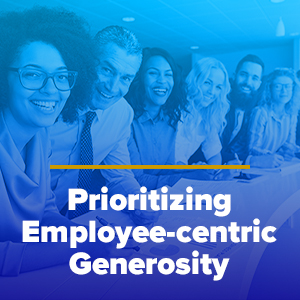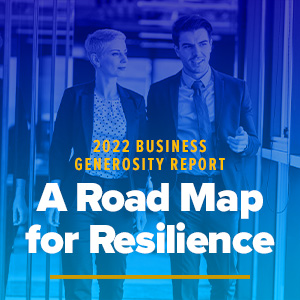Chapter Four:
Maintaining Trust
and Solving Problems
There’s good news. Employed adults in Georgia trust business to do what is right
When given the option of who they trust “to do what’s right”, Georgian’s named their employer as the most trusted institution (65%). Next on the list in a near tie for second are small, local businesses (58%) and nonprofit organizations (55%). Importantly, trust in larger corporations appears to sit in close proximity to trust in government while media falls clearly in last place.
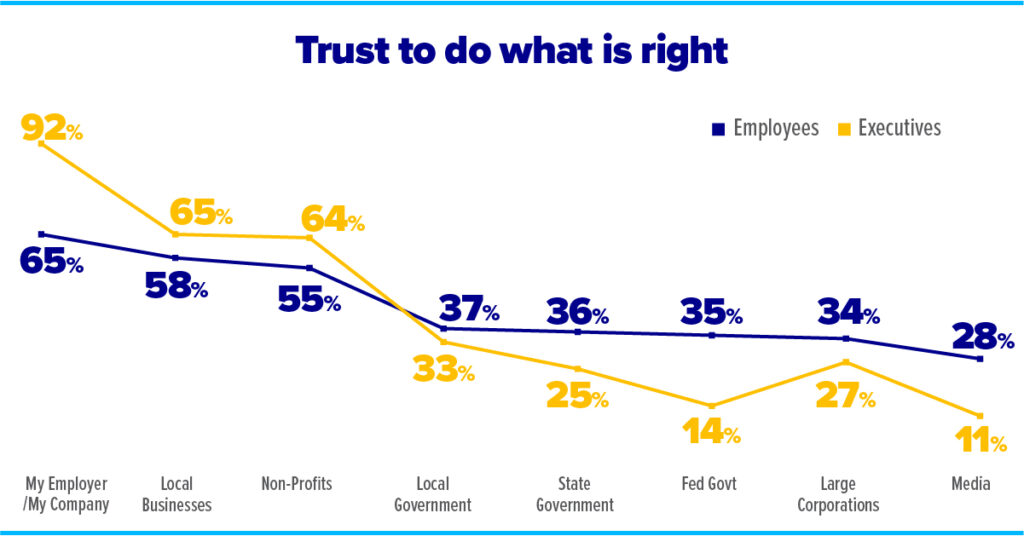
Trust increases when it comes to solving societal problems
Again, respondents have a high degree of trust in local business (76%) and their own employer (75%) to help solve problems. Employees who are younger than 35 and of color are statistically more likely to trust their employer to help solve problems. Trust in large corporations increases when it comes to helping problem solve, earning them a sizable increase from 34% to 57%. Across both executives (58%) and employees (62%) there is consensus that business in general is putting commitment to generosity into action.
Important evolutions for demonstrating generosity to the community
Employees provided input into how business can effectively demonstrate generosity toward the community and help solve societal problems:
CHARITABLE GIVING: When asked how a company might demonstrate generosity toward the community, all respondents (executives and employed adults alike) believe that charitable giving is the best choice. Executives (69%) and employees (50%) selected charitable giving as their top choice with contributions of expertise as their strong second.
Employees placed matching gifts in the number three spot, elevating this option as a way to possibly indicate their interest in having some agency and support in personal charitable giving.
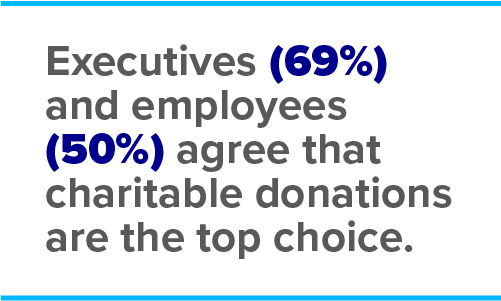
It is important to note, that employees under the age of 35 and those of color were less likely to select charitable giving and more interested in activities such as lobbying or public statements.
When asked about effective ways for business to solve societal problems, executives elevated charitable donations as a more successful tactic for large corporations (66%), than for small, local businesses (52%). Employees agreed with the weight of this prioritization indicating greater importance for large corporations (53%) to contribute financial donations than small, local businesses (41%)
CORPORATE VOLUNTEERISM: Executives should take note of important feedback in the data about corporate volunteerism. Executive respondents selected volunteerism as one of their top three ways to demonstrate generosity to the community, but employees ranked other activities higher. For employed adults, company volunteer projects came in fifth place behind other activities such as charitable giving (50%), contributions of expertise or skill (34%), matching gifts (33%) and environmentally conscious business practices (32%).
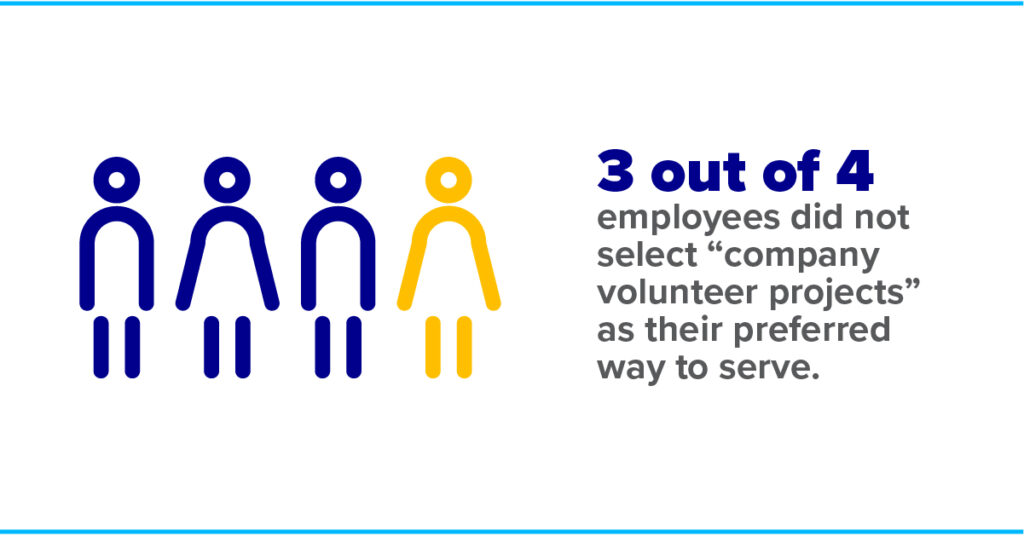
When asked specifically about how they would prefer to volunteer, the top choice among employees was to be given PTO to volunteer wherever they like. Only a quarter of employees selected company sponsored volunteer projects as their preferred choice with almost an equal amount (22%) indicating that they would like to know that company volunteer projects exist, but they do not want to feel pressured personally to participate.
Employees under the age of 35 were far more likely to notice if their employer offered company sponsored volunteer opportunities than their older colleagues (62% compared to 33% for those older than 35) and the vast majority of younger employees (83%) said that if it was offered, they participated in a company sponsored volunteer project in the past two years. But again, when given the choice how they prefer to serve, 4 in 10 preferred PTO to volunteer where they choose.
Employees selected volunteerism as their second choice for a small, local business to help while business leaders elevated volunteerism to their number one way for small, local businesses to tackle problems.
LOBBYING & PUBLIC STATEMENTS: When it comes to ways business can demonstrate generosity to the community, neither lobbying nor public statements were prioritized by either employees or executives as top choices (Chapter Two).
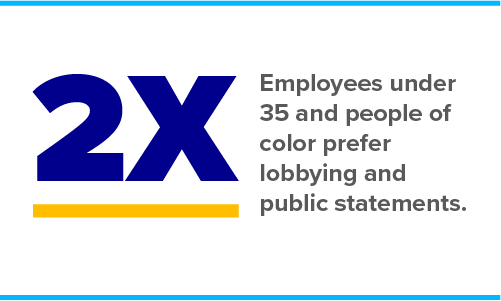
However, if you look at the opinions of employees under the age of 35 and colleagues of color you will find they were twice as likely to select lobbying or public statements as a top three choice for ways their employer can demonstrate generosity to the community.
Opinions on these activities shift in terms of effective ways for businesses to help solve societal problems. In this framing, executives (48%) and employees (33%) were more likely to select this as an effective way for large corporations to solve problems. However, employees were more inclined than executives to say they would like to see businesses of all sizes making public statements in an effort to help solve problems, with younger respondents relying twice as much on CEO statements to inform their judgement of a company’s generosity.
Explore further insights:
In Partnership with



